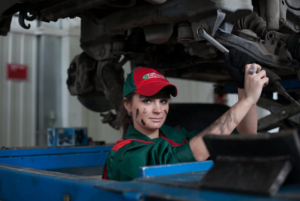Are you a lover of all things vintage with a passion for the open road and the timeless beauty of classic cars? If so, you’ve come to the right place. In this post, we will dive headfirst into the exhilarating world of owning and reviving a classic car. From navigating the challenges that come with maintaining these automotive legends to unleashing their full glory on the streets, get ready to embark on an unforgettable journey filled with nostalgia, dedication, and countless thrilling adventures.
Parts Availability and Cost
One of the primary challenges of owning a classic car is the availability and cost of replacement parts. Unlike modern vehicles, many classic cars have been out of production for decades, making original parts rare and sometimes difficult to find. When parts are available, their cost can be considerably higher than those for contemporary vehicles.
Owners may need to scour salvage yards, attend swap meets, or rely on specialized suppliers to find the necessary components. This challenge requires a combination of resourcefulness and financial planning to keep a classic car in optimal condition. So before you buy a classic vehicle from Beverly Hills Car Club car dealership or other classic car dealers, make sure you research the available parts and their cost.
Maintenance and Repairs Expertise
 Classic cars often feature mechanical systems and technologies that are outdated by today’s standards. Finding qualified mechanics with the expertise to repair and maintain these vintage vehicles can be a significant challenge. Many modern technicians are not familiar with the intricacies of carburetors, points ignition systems, or drum brakes, which are common features in classic cars.
Classic cars often feature mechanical systems and technologies that are outdated by today’s standards. Finding qualified mechanics with the expertise to repair and maintain these vintage vehicles can be a significant challenge. Many modern technicians are not familiar with the intricacies of carburetors, points ignition systems, or drum brakes, which are common features in classic cars.
Owners may need to seek out specialty shops or mechanics who specialize in vintage automobiles. This can result in longer waiting times for repairs and potentially higher maintenance costs due to the specialized skill set required.
Limited Daily Usability
Classic cars are a piece of automotive history, and while they offer a unique driving experience, they often come with limitations in terms of daily usability. Features that are now standard in modern cars, like power steering, air conditioning, and advanced safety features, may be absent in classic cars.
The lack of conveniences and safety enhancements can make daily commuting or long-distance travel less comfortable and practical. Classic cars are best enjoyed as weekend cruisers or for special occasions, emphasizing their role as cherished collectibles rather than practical daily drivers.
Depreciation Concerns

Unlike some modern cars that can retain their value well, classic cars are subject to a different set of market dynamics. While some classic cars appreciate over time, many others may experience depreciation, especially if they require extensive restoration or customization.
The market for classic cars can be unpredictable, influenced by factors such as trends, demand, and the availability of specific models. Owners need to be mindful of the financial investment they make and the potential for fluctuations in the market value of their classic vehicle.
Environmental Impact and Regulations
Classic cars often have less fuel efficiency and higher emissions compared to their modern counterparts. As environmental awareness and regulations evolve, classic car owners may face challenges in complying with emissions standards and other environmental regulations. In regions with strict emissions requirements, owning and driving a classic car may be subject to restrictions. Some areas have implemented emission testing for older vehicles, and modifications may be necessary to meet compliance standards, adding an extra layer of complexity to classic car ownership.
Owning a classic car is undoubtedly a passion-filled journey that connects enthusiasts with automotive history and craftsmanship. However, it’s essential to acknowledge the challenges that come with preserving and enjoying these vintage gems. From parts availability and maintenance expertise to daily usability concerns and the potential for depreciation, classic car owners must navigate a unique set of hurdles.

